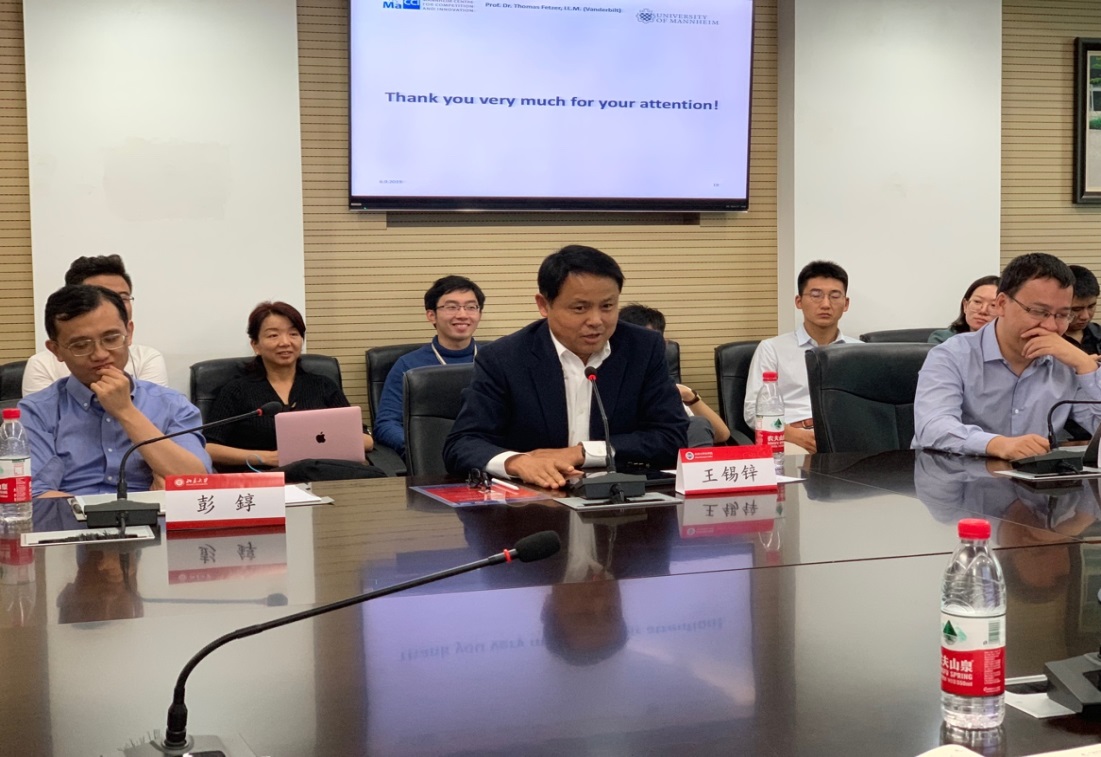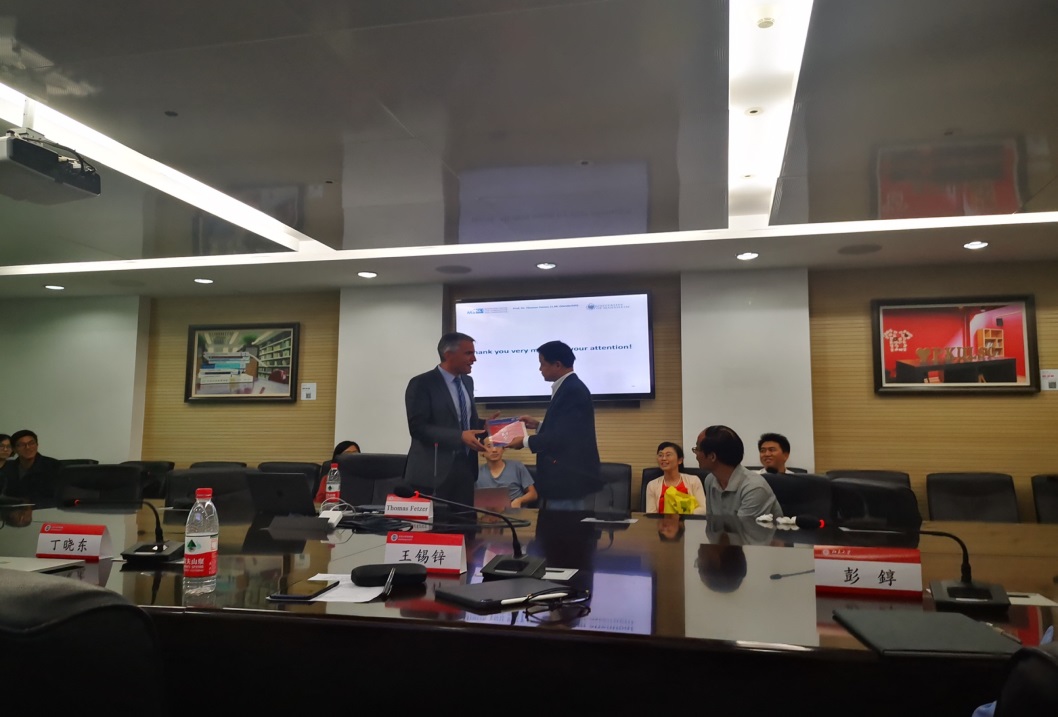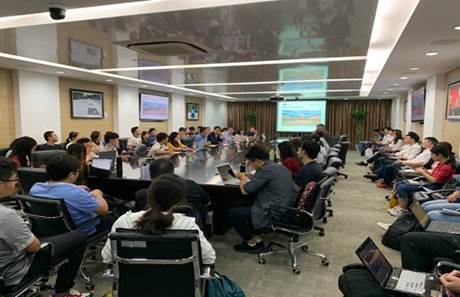Seminar on "big data, AI and EU General Data Protection Ordinance" was successfully held at the law school
Date:2019-10-14
On the evening of September 23, 2019, the lecture entitled "big data, artificial intelligence and the EU General Data Protection Ordinance" sponsored by the center for globalization and rule of law was successfully held in the 307 conference room of Koguan Building, Law School. Thomas Fetzer, the professor and vice president of the Law School of Mannheim University and the director of the competition law center, was invited as the keynote speaker. This is Professor Fetzer who once again visited Law School for a half month. With more than 50 teachers and students share opinons on data privacy and other related topics, this lecture focused on the two popular words of "Big Data" and "artificial intelligence (AI)", and discussed regulation problems and solutions under the EU General Data Protection Ordinance (GDPR). Wang Xixin, Professor of the Law School, vice president of the Future Law Research Institute of the Law School, Ding Xiaodong, as a guest speaker, held a dialogue with Professor Fetzer, and assistant professor Peng Dui served as the chair.
Professor Thomas Fetzer first presented a large number of statistical charts showing the important value of real data for AI training, and pointed out that data collection itself does not necessarily constitute a violation of privacy, the investigation of privacy issues should be carried out in individual cases and judged according to context. Accordingly, data regulation should be flexible to find a balance between privacy protection and social welfare brought about by AI development.
After establishing a value reference for the "good system", Professor Fetzer turned to a deep analysis of GDP R and made an evaluation of the feasibility and flexibility of applying the regulation to AI and big data from the perspective of system design and factual effect. In addition to the difficulties that GDP R has faced in the implementation of traditional Internet, Professor Fetzer particularly mentioned that when the collected data will be used for AI training, it is difficult to define its necessary scope, purpose, purpose, etc. Therefore, such behavior is difficult to minimize the data related to GDP R, purpose limitation, informed consent, transparency limitation, and whether the decision-making power should be retained or not. Therefore, GDP R in this area, if not failing, is not flexible enough.
So, how to protect privacy without stifling the prospects of AI innovation and the effective use of data as a resource in the social sphere? Professor Fetzer has proposed two possible solutions: one is to set up third-party organizations as "privacy administrators", and the other is to promote "privacy competition" among market players. He then discussed the logic and defects of the two schemes.

In the section of comment and question-and-answer, Professor Ding Xiaodong took the different approaches taken by common law and mainland law countries in the field of data privacy protection as the starting point to talk with the keynote speaker, and also asked Professor Fetzer's opinions on issues related to data migrability. Professor Wang Xizin focused on such controversial topics as high GDP R standards and the concept of "personal data rights" in the field of data law. He commented and asked questions in connection with the content of the lecture. Professor Fetzer responded to questions raised by other teachers and students from the perspectives of how privacy is valued and the powers of regulators under GDP R. Until the end of the lecture, the discussion was still been wanted more.


Translated by: Chen Yangbing



